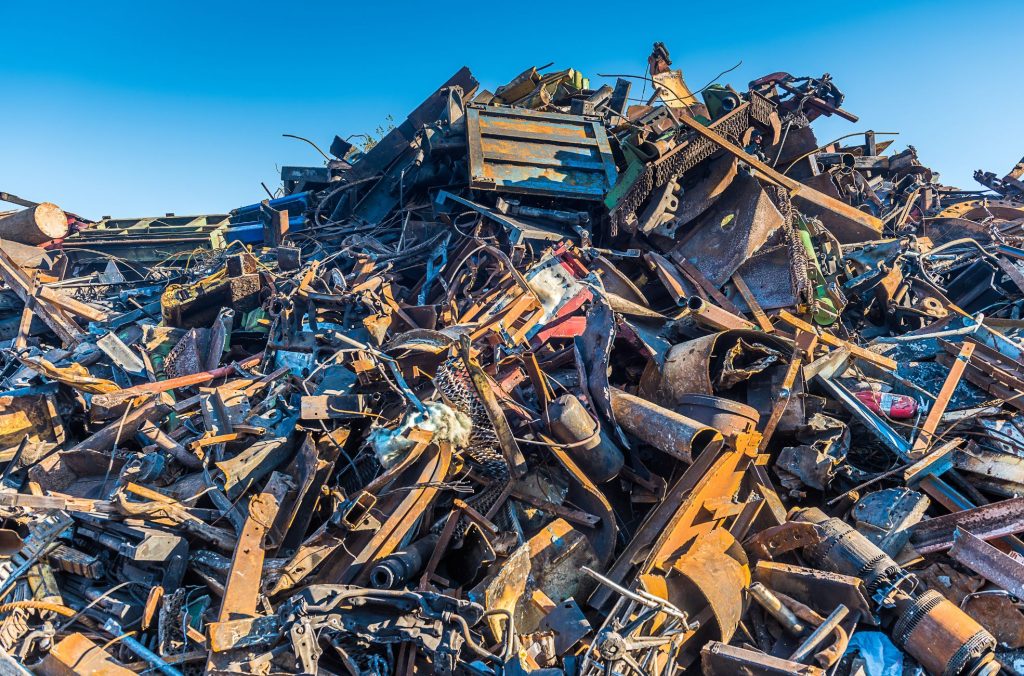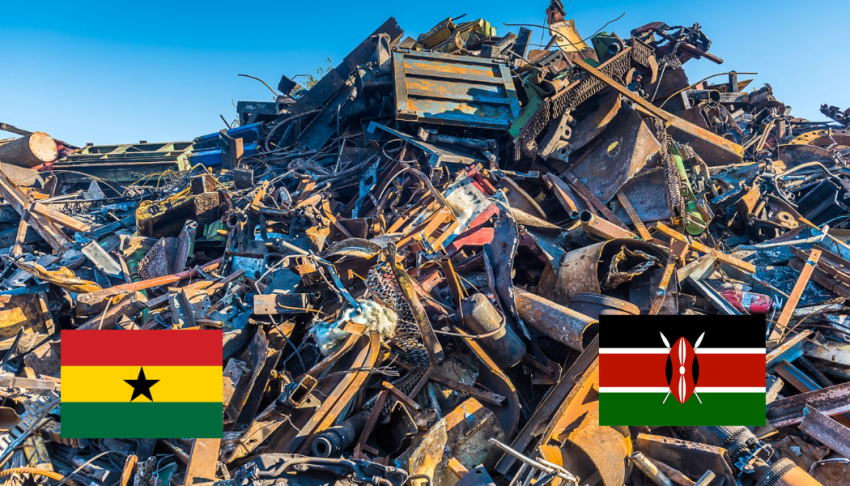By Raymond Rex Awiagah
Background
Vandalism of public infrastructure is now becoming a growing practice in many countries in Africa. This is being driven by the lucrative scrap metal business. Even though its seen as a lucrative venture, the sector is poorly managed in Ghana.
Kenya’s Scrap Metal Challenges
In 2022, Kenya was experience this same situation but the government took a bold decision where a nationwide ban was imposed on the on scrap metal dealings due to increased vandalism of vital infrastructure, especially power lines.
Kenya’s Scrap Metal Challenges in Ghana
Today, Ghana is facing a similar challenge, with criminals targeting iron rods from road infrastructure under the guise of scrap metal business.
This article by Rays Report compares Kenya’s decisive action with the current situation in Ghana, highlights the dangers of unchecked scrap metal activities, and outlines how Ghana can learn from Kenya’s example to safeguard its national assets
Kenya’s Bold Response to Scrap Metal-Driven Vandalism
In 2022 when there was an increased vandalism of infrastructure in Kenya because of the scrap metal business the then President Uhuru Kenyatta banned any exports or dealings in scrap metal in Kenya.
Mr. Kenyatta said that no dealers will be allowed to engage into the business until proper guidelines were put in place to regulate the sector.

The ban came at a time Kenya was witnessing an increase in the number of vandalism mainly on power lines across the country.
The Kenyan government’s move, though controversial at the time, was seen as a necessary intervention.
However, today it has helped curb infrastructure theft, initiated the development of strict licensing regulations.
Also, it has underscored the urgent need to protecting public property from criminal elements masquerading as legitimate scrap dealers.
Ghana Faces Rising Vandalism: A Similar Pattern
Back home in Ghana, a disturbing video recently went viral showing some unscrupulous persons have cut and stolen some iron rods on the Achimota Bound Road Retaining Wall on the south side of the Tantra Hill underpass.
The criminals, believed to operate under the cover of darkness, have peeled off the covering used for the rods in order to have access to them.
In a viral video, portions of the affected area can be seen, with the exposed iron rods, some of which have been vandalized.
Response from Ghana’s Ministry of Roads and Highways
According to the Head of the Public Relations Unit of the Ministry of Roads and Highways, Mr. Nasir Ahmad Yartey, the situation had come to the attention of the ministry for some time now, and that an assessment of the facility showed that there was weak and porous concrete in the affected parts of the retaining wall.
At Rays Report, we believe that but while the infrastructure had its defects, nothing justified the wanton destruction.
Mr Yartey said steps had been taken to fix the problem and that the situation had been evaluated.
“We have done all the estimates and selected the contractor, and we are hoping that he will mobilise to site and start the remedial works soon,” he said.
He added that It is becoming one too many where people vandalise road infrastructure, especially street lights, bolts and nuts, citing the stealing of the bolts and nuts on the tunnel across the Accra-Tema Motorway.
Mr Yartey appealed to members of the public to provide information on persons who engaged in such nefarious activities.
Lessons Ghana Can Learn from Kenya
Kenya’s experience offers several critical lessons for Ghana:
Firstly, Enforce a Temporary Ban to Reset the Sector
Kenya’s decision to halt scrap metal dealings gave authorities the breathing space to reassess and restructure the industry. Ghanaian authorities should consider a temporary freeze or moratorium on scrap metal activities across the country. This will be a hard decision but in the long term, it will benefit the country.
Develop Clear Regulations and Licensing
One of the key outcomes of Kenya’s ban was the establishment of strict regulations. Ghana’s scrap metal sector is it stands has or lacks a robust oversight.
This has given way to some unscrupulous operators to thrive. Clear laws, proper identification of licensed dealers, and traceability of metal sources are crucial.
Strengthen Surveillance and Public Participation
Both nations recognize the importance of public support. In Ghana, Mr. Yartey called on the public to report such acts.
Ghana could take this further by setting up hotlines, reward systems for whistleblowers, and deploying CCTV in vulnerable infrastructure zones.
Empower Local Assemblies and Security Forces
Just as Kenya involved the police and local leaders, Ghana must empower local assemblies and community leaders to monitor and protect infrastructure. This decentralization can lead to quicker responses and better community ownership.
Conclusion: Time for Ghana to Act Decisively
While Kenya’s firm stance on scrap metal vandalism in 2022 sent a clear message: infrastructure is a national asset and must be protected at all costs. Ghana must act now—not just to respond to incidents, but to prevent them altogether.
At Rays Report, we believe that, if the Government of Ghana should take bold regulatory and enforcement measures, learning from Kenya’s approach, and engaging citizens in the fight against vandalism, Ghana can preserve its infrastructure for future generations and deter criminals who seek to profit at the nation’s expense.





